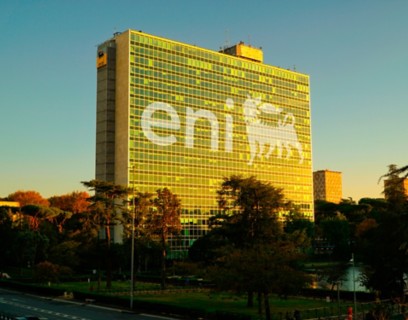Eni’s management of whistleblowing reports
We ensure the management, analysis and handling of whistleblowing reports received, by Eni and by its subsidiaries in Italy and abroad.
The Whistleblowing Management System
In compliance with the provision of the Directive (EU) 2019/1937 and the relevant transposition laws, the 2002 Sarbanes-Oxley Act, the company’s Organisational, Management and Control Model, pursuant to Italian Legislative Decree. n. 231 of 2001, and internal anti-corruption regulations, we have adopted a system for the management of whistleblowing reports that enables us to manage whistleblowing reports received, including anonymously, by Eni SpA and by its subsidiaries in Italy and abroad.
In compliance with applicable regulations, regardless of the content of the report and the entity of Eni concerned by it, it is always guaranteed that reports can be sent directly to Eni SpA or through specific reporting channels, set up by subsidiaries in the cases provided for by applicable regulations.
Whichever channel is used, we guarantee the receipt, analysis and management of whistleblowing reports that are sent by or transmitted from anyone, stakeholders, Eni’s People (Eni personnel and anyone, physical or legal persons, who operate in Italy and abroad for achieving Eni’s objectives, each within the scope of their own functions and responsibilities) or other third parties, also when anonymous. Eni consider a whistleblowing report any communications concerning behaviors that relate to Eni's People in violation of the Code of Ethics, any laws regulations, provisions of authorities, internal regulations (among others, Zero Tolerance against violence and harassment in the workplace), Models 231 or Models CE.
The outcome of the verification activities carried out on the reported facts are presented to the Board of Statutory Auditors, owner of the process, also by virtue of its role as Audit Committee under SOX.
The company guarantees the strict confidentiality on the persons and facts reported and on the identity of the reporting persons to ensure that they are not subject to any form of retaliation.
The reference legislation is included in the regulation "Management of Reports Received by Eni SpA and Subsidiaries".
Whistleblowing reports may be sent using a dedicated Platform – suitable for ensuring, by IT tools, the confidentiality of the reporting person’s identity – available at the following link.
Please note that, alternatively, it is possible to send the report also through the following channels:
Email address: whistleblowing@eni.com - segnalazioni@eni.com
Ordinary post: Eni S.p.A., Internal Audit, P.le E. Mattei 1, 00144, Rome, Italy
Fax: +39 06 598.27335
Voice mail (Italy only): 800.60.20.099
Eni's voicemail box can be reached from abroad, where technically possible, at no costs to the caller or at the cost of a local call; in other cases, the voicemail box can be called for reports via the chargeable number: +39 06 598 27323.
Without prejudice to the preferential use of the reporting channels made available by Eni, in the cases peremptorily indicated pursuant to Article 6 of Legislative Decree 24 of 10 March 2023, reports may also be submitted to the competent authority in the matter (ANAC).
The information and personal data provided in the context of whistleblowing reports are processed for the purpose of managing and following up the reports, as well as investigating any reported conduct and adopting the necessary measures in accordance with applicable laws, including data protection legislation. For more information on the modalities and purposes of the processing of personal data included in the reports and collected during the procedure, please consult the privacy information notices for the whistleblowers and the reported person or other third parties involved in the whistleblowing report that are available on this page.
Whistleblowing management
| 2020 | 2021 | 2022 | 2023 | 2024 | |
|---|---|---|---|---|---|
| Whistleblowing files opened during the year categorized according to the process that is the subject of the report: (number) | 74 | 73 | 78 | 77 | 71 |
| Procurement | 20 | 20 | 35 | 19 | 23 |
| Human resources | 16 | 27 | 20 | 42 | 21 |
| Maintenance | 1 | 1 | 9 | 2 | - |
| Commercial | 12 | 6 | 4 | 6 | 16 |
| Logistic, law materials and products | 3 | 3 | 2 | - | 1 |
| HSE | 10 | 7 | 2 | 6 | 6 |
| Others (security, operations, portfolio management and trading) | 12 | 9 | 6 | 2 | 4 |
| Whistleblowing files that have been closed during the year divided according to the outcome of the investigations: | 73 | 74 | 77 | 80 | 63 |
| Founded | 22 | 10 | 12 | 10 | 6 |
| Partially Founded(a) | - | 13 | 14 | 10 | 14 |
| Unfounded, with the adoption of improvement measures(b) | 32 | 18 | - | - | - |
| Unfounded/Not ascertainable(c)/not applicable(d) | 19 | 33 | 51 | 60 | 43 |
(a) Investigations conducted have revealed evidence that one or more of the assertions in the report are reasonably believed to be true (classification introduced from October 1st, 2021)
(b) Classification no longer used since 2022
(c) Whistleblowing reports that do not contain any circumstantial, precise and/or sufficiently detailed elements and/or, for which, on the basis of the investigative tools available, it is not possible to confirm or exclude the validity of the assertion contained in the report
(d) Whistleblowing reports in which the facts reported coincide with the subject of pre-litigation, disputes and investigations in progress by public authorities (for example, ordinary and special judicial authorities, administrative bodies and independent authorities with supervisory and control functions). The assessment is carried out subject to the opinion of the legal affairs function or other competent functions.
Management of whistleblowing Reports and respect for human rights
Regarding to whistleblowing reports, in 2024 investigations were completed on 63 files1, of which 32 included human rights issues, mainly concerning potential impacts on workers’ rights and occupational health and safety.
Among these, 64 assertions were verified; for 10 of these, the reported facts were confirmed, even partially, and corrective actions were taken to mitigate and/or minimise their impacts. In particular, the following were undertaken:
(i) actions on the Internal Control and Risk Management System, relating to the implementation and strengthening of controls in place;
(ii) awareness on the topics of the Code of Ethics and the Zero Tolerance Policy and
(iii) actions against employees, including disciplinary measures, in line with the collective agreements and other applicable national laws.
At the end of the year, 21 files were still open, 9 of which referred to human rights issues, mainly concerning potential impacts on workers’ rights.
1) Whistleblowing report: a summary document of the investigations carried out on the report(s) (which may contain one or more detailed and verifiable assertions) in which the summary of the investigation carried out on the facts that are the subject of the report, the outcome of the investigations carried out and any action plans identified are reported.
Report on human rights violations
| 2020 | 2021 | 2022 | 2023 | 2024 | |
|---|---|---|---|---|---|
| Whistleblowing files (assertions) on human rights violations closed during the year and categorized by results of the investigations and typology. (number) | 25(28) | 30 (40) | 45(62) | 46(62) | 32 (64) |
| Founded assertions | 11 | 2 | 12 | 8 | 10 |
| Potential socio-economic impacts on local communities (a) | 0 | 0 | 0 | 0 | 0 |
| Potential impacts on health, safety and/or well-being of local communities (b) | 1 | 0 | 0 | 0 | 4 |
| Potential impacts on worker rights (c) | 6 | 2 | 7 | 7 | 6 |
| Potential impacts on workplace health and safety (d) | 4 | 0 | 5 | 1 | 0 |
| Partially founded assertions (e) | - | 3 | - | - | - |
| Potential socio-economic impacts on local communities | - | 0 | 0 | 0 | 0 |
| Potential impacts on health, safety and/or well-being of local communities | - | 1 | 0 | 0 | 0 |
| Potential impacts on worker rights | - | 2 | 0 | 0 | 0 |
| Potential impacts on workplace health and safety | - | 0 | 0 | 0 | 0 |
| Unfounded assertions, with the adoption of corrective/improvement measures(e) | 9 | 7 | - | - | - |
| Potential socio-economic impacts on local communities | 0 | 1 | 0 | 0 | 0 |
| Potential impacts on health, safety and/or well-being of local communities | 0 | 0 | 0 | 0 | 0 |
| Potential impacts on worker rights | 7 | 3 | 0 | 0 | 0 |
| Potential impacts on workplace health and safety | 2 | 3 | 0 | 0 | 0 |
| Unfounded/Not ascertainable(f)/Not applicable assertions(g) | 8 | 28 | 50 | 54 | 54 |
| Potential socio-economic impacts on local communities | 0 | 1 | 0 | 0 | 0 |
| Potential impacts on health, safety and/or well-being of local communities | 0 | 3 | 3 | 2 | 2 |
| Potential impacts on worker rights | 8 | 14 | 33 | 46 | 37 |
| Potential impacts on workplace health and safety | 0 | 10 | 14 | 6 | 15 |
(a) Including issues related to consultation and/or compensation processes and increase in conflicts.
(b) Including the requirements for the management of polluting products.
(c) Including delays in the recognition of due wages, discrimination, harassment, bullying and mobbing.
(d) Including unhealthy and/or insecure workplace environments.
(e) Classification no longer used since 2022.
(f) Allegation that do not contain any circumstantial, precise and/or sufficiently detailed elements and/or, for which, on the basis of the investigative tools available, it is not possible to confirm or exclude the validity of the facts reported in them.
(g) Allegations in which the facts reported coincide with the subject of pre-litigation, disputes and investigations in progress by public authorities (for example, ordinary and special judicial authorities, administrative bodies and independent authorities with supervisory and control functions). The assessment is carried out subject to the opinion of the legal affairs function or other competent functions.


















